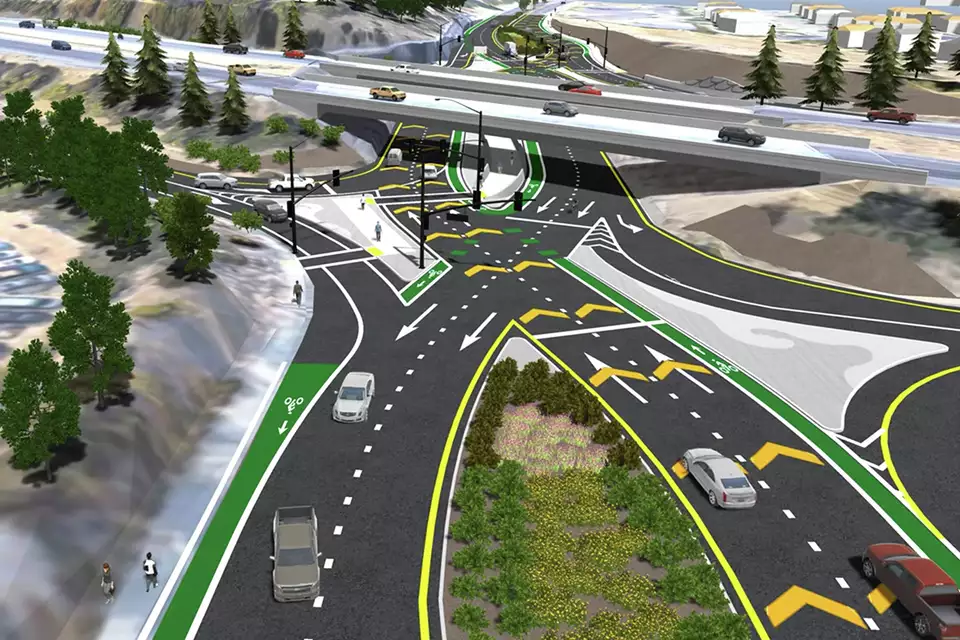Fuck Cars
A place to discuss problems of car centric infrastructure or how it hurts us all. Let's explore the bad world of Cars!
Rules
1. Be Civil
You may not agree on ideas, but please do not be needlessly rude or insulting to other people in this community.
2. No hate speech
Don't discriminate or disparage people on the basis of sex, gender, race, ethnicity, nationality, religion, or sexuality.
3. Don't harass people
Don't follow people you disagree with into multiple threads or into PMs to insult, disparage, or otherwise attack them. And certainly don't doxx any non-public figures.
4. Stay on topic
This community is about cars, their externalities in society, car-dependency, and solutions to these.
5. No reposts
Do not repost content that has already been posted in this community.
Moderator discretion will be used to judge reports with regard to the above rules.
Posting Guidelines
In the absence of a flair system on lemmy yet, let’s try to make it easier to scan through posts by type in here by using tags:
- [meta] for discussions/suggestions about this community itself
- [article] for news articles
- [blog] for any blog-style content
- [video] for video resources
- [academic] for academic studies and sources
- [discussion] for text post questions, rants, and/or discussions
- [meme] for memes
- [image] for any non-meme images
- [misc] for anything that doesn’t fall cleanly into any of the other categories
Recommended communities:
view the rest of the comments

Theyre extremely car-centric, space-inefficient, wildly expensive, and don't do anything to solve traffic.
https://youtu.be/xzYt3h36Llo
None of which are problems they're actually trying to tackle.
They improve traffic a bit (not solve), and are substantially safer. They're only meant to do those 2 things, and they're good at it. Nobody thinks a single intersection idea will fix transportation as we know it.
They spent $25M not making travel safer for bicycles and pedestrians, and explicitly making travel less efficient by inducing car demand. $25M could buy Caltrans an entire set of one of their new Stadler kiss trains, to go from 24 trains sets to 25.
edit: Actually this intersection is more dangerous than the existing intersection. It doubles the amount of pedestrian signals that pedestrians have to cross, and eliminates the sidewalk on the east side. Plus, they're cutting down like 8 trees and not replacing them. This is urban decay.
That quote isn't referring solely to this specific intersection design.
But yes it's also safer for bicycles and pedestrians. Just not as safe as not using cars.
And spending $25 million on a 25th train instead, wouldn't make this interchange 60% safer. Or even 5% safer.
Again. It's better. Nobody claims it's perfect.
It's worse than the existing interchange. This is a one-more-lane project that makes the neighborhood worse for bicylists and pedestrians.
https://sta.ca.gov/project/redwood-parkway-fairgrounds-dr-improvement-project/
Are you using marketing statements as evidence of... Anything?
That's almost never a good idea.
It just seems strange to portray highway interchanges in a positive light. Like, they might be the safest interchange for stroads intersecting an interstate, but that's kinda like putting a $25M bandaid on a bullet wound.
I want you--a random individual--to go on stage, and tell the country that just elected Donald Trump to make cities walkable.
Have a ball.
DDIs are the best we have right now. At the very least, the conservative nutjobs in my city don't detest them to hell.. much. They can be scaled down, and single lane versions would be perfectly acceptable in a walkable city.
Transportation planning is a local issue, not a national issue. Obviously national funding plays a role, but you don't need national funding for sidewalks and bike infrastructure. Vallejo's local and state government representatives are all Democrats.
It is worse for pedestrians, who now have twice as many traffic signals to wait for. It is worse for cyclists, with "gauntlet" bike lanes running between through- and right-turning lane. It is only better for cars...so hardly the "best" interchange in existence.
Highway interchanges aren't good places for pedestrians or cyclists at the best of times. Just take a look at the current intersection.
These are legitimately some of the only interchange designs which integrate nicely with pedestrian paths and bike lanes.
I'm not sure if there's any safe way to have level crossings for bicycles and pedestrians across highway ramps. The safe ones are almost always underpasses or overpasses. There's a bicycle path in Stockholm at the end of a highway ramp as it merges onto a 50 km/h road, and I'm terrified to use it.
I have no clue how you are getting down voted in a fuckcars community for pointing out this infrastructure is still car centric and does nothing to solve traffic, only induce demand.
If this area was designed for people only it would not look like this.
This is still city planners creating a dangerous strode and intersecting it with a interstate highway and calling it good enough.